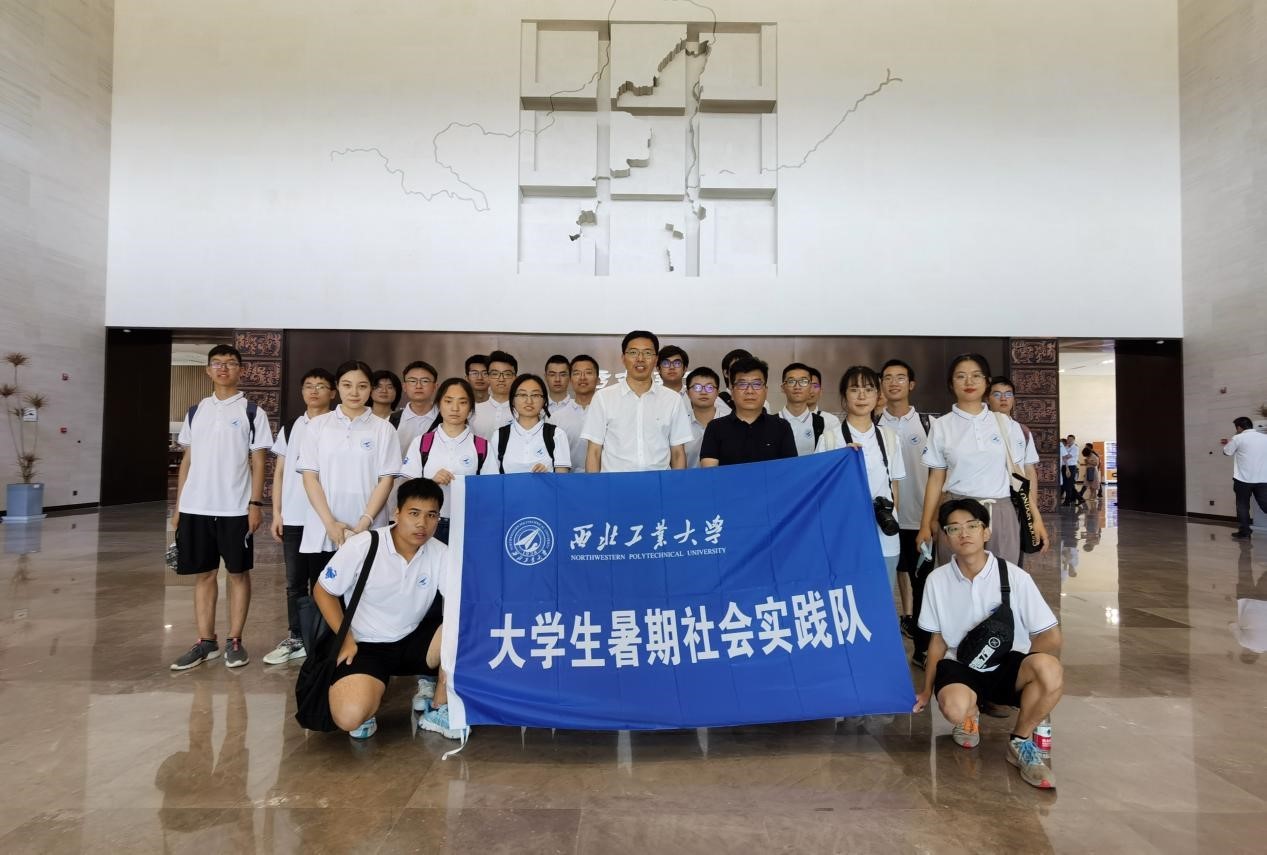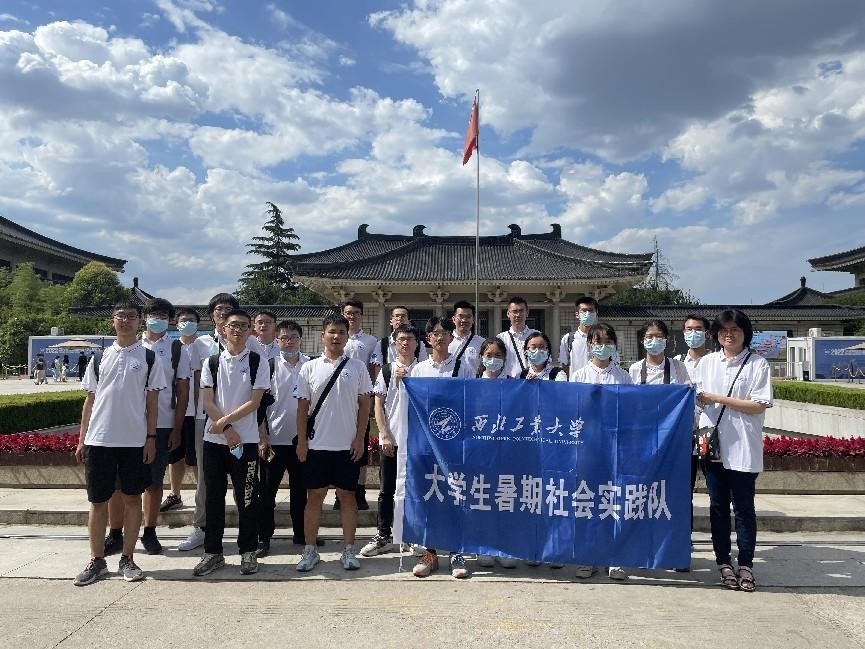The year 2022 is an important year for China to embark on a new journey to build a modern socialist country in an all-round way and march towards the second centenary goal; at the same time, it is also an important year for the upcoming 20th National Congress of the Communist Party of China. In order to celebrate the 20th National Congress of the Communist Party of China and explore the footprints of a powerful country, the practice team of NPU carried out practical activities based on the course ofPhysics and Artin Shaanxi Archaeological Museum and Shaanxi History Museum on June 25th, 2022 to learn Chinese traditional culture, look back on the development of Chinese history, and explore the road to a powerful country in the new China.
The practice team arrived at Shaanxi Archaeological Museum at 9:30 a.m.This is a special museum of archaeology, which was completed and opened on a trial basis in 2022. Its permanent exhibition takes “Huazhang Shaanxi, An Archaeological Holy Place” as its theme, and is divided into four chapters, including “archaeological history”, “cultural pedigree”, “archaeological discovery”, and “protection of cultural relics and science and technology”. The members of the practice team visited the four exhibition halls in turn under the guidance of the commentator. The combination of cultural relics and unearthed background as well as the interpretation of Archaeology from a scientific perspective are both conducive to the members of the practice team to clarify the development context of Chinese archaeology and Shaanxi archaeology.Sun Zhouyong, President of the Shaanxi Academy of Archaeology, personally attended this activity and gave a brief explanation to the students.In combination with the current situation of the construction and display of the archaeological museum, he encouraged everyone to learn more and see more, so that everyone could feel the remarkable progress in the level of ancient science and culture, further understand the significance of archaeology, and cultivate their awareness of the protection for cultural heritage.

Then, after a short rest, the practice team went to Shaanxi History Museum for practical activities.Shaanxi History Museum is the first large-scale modern national museum in China, and has the reputation of “Pearl of the Ancient Capital and Treasure House of China”. In history, thirteen feudal dynasties, such as Zhou, Qin, Han, Sui and Tang, have established their capitals in Xi’an, thus creating the characteristics of rich historical background of Xi’an and forming the unique historical and cultural features of Shaanxi.As a comprehensive historical museum, Shaanxi History Museum takes the historical process as a clue and selects typical cultural relics of various times for combination and display to reveal the development of ancient social civilization in Shaanxi.During the practice, the members of the practice team watched the exhibition of historical relics and the restoration of 3D scenes on the spot, and had close contact with the replicas, feeling the historical process of the development of cultural relics.By listening to the detailed description of the commentator, the members of the practice team had a further understanding of the social life and culture of the Zhou, Qin, Han, Wei, Jin and the Southern and Northern Dynasties, Sui and Tang Dynasties, as well as Song, Yuan, Ming and Qing Dynasties.
In addition, the practice team also entered the “Relics of the Tang Dynasty - Exhibition of Unearthed Cultural Relics in He Jia Village”, which is the most important part of the treasures display in the Shaanxi History Museum.The He Jia Village Cellar in the prosperous Tang Dynasty can be described as “the Pearl on the Crown”, in which the six chapters has showed the civilization of the prosperous Tang Dynasty from six aspects, including laws and regulations, food culture, makeup and clothing, leisure and entertainment, exchange and mutual learning, and craft technology.

Enter the museum, you can appreciate the breadth and depth of Chinese culture in the process of historical development, as well as inherit and promote Chinese culture in the long history.Through visiting and studying in these two museums, the practice team has further grasped the historical development process of China, cultivated a deep sense of national pride and cultural relics protection, and found the road to a powerful country in the new era and the responsibilities and missions that contemporary college students should undertake.
Text: Liu Jingqi and Zhao Chunyi
Photo: Zhao Chunyi
Edit: Wu Sijia
Review: Dai Fuping
Translator: Liu Kaixuan

